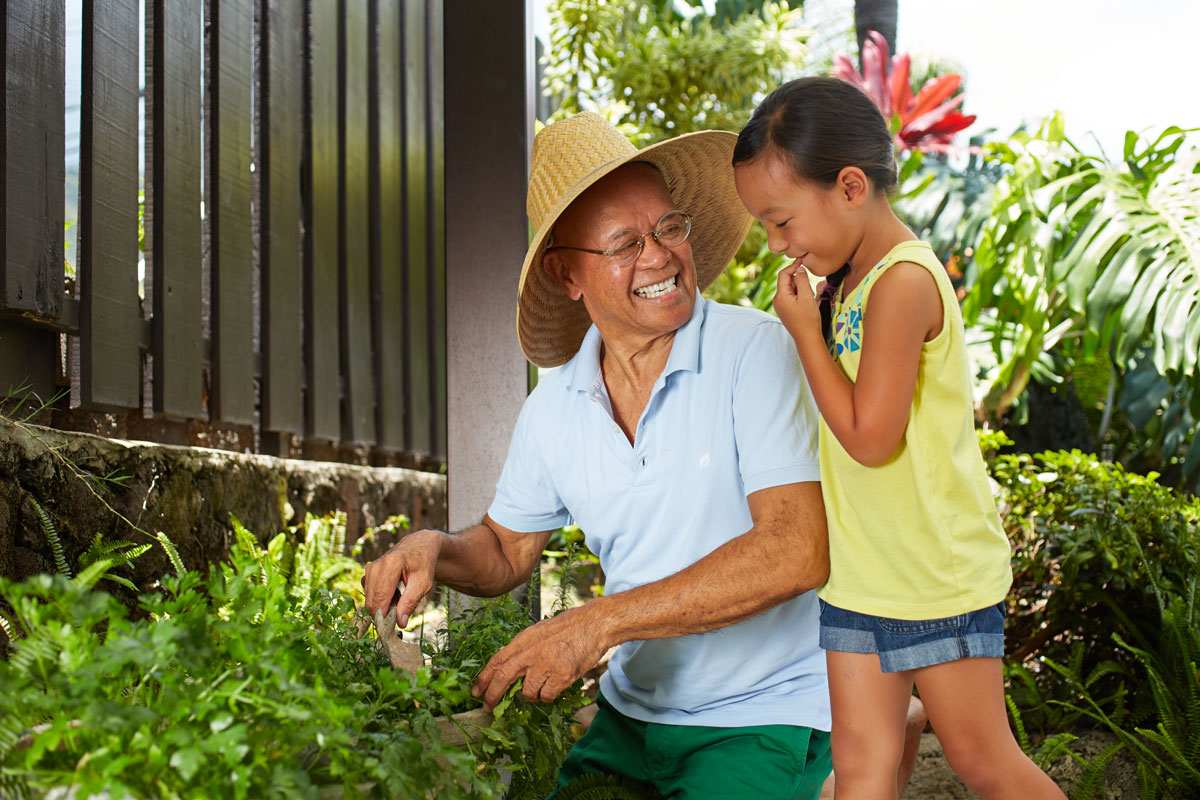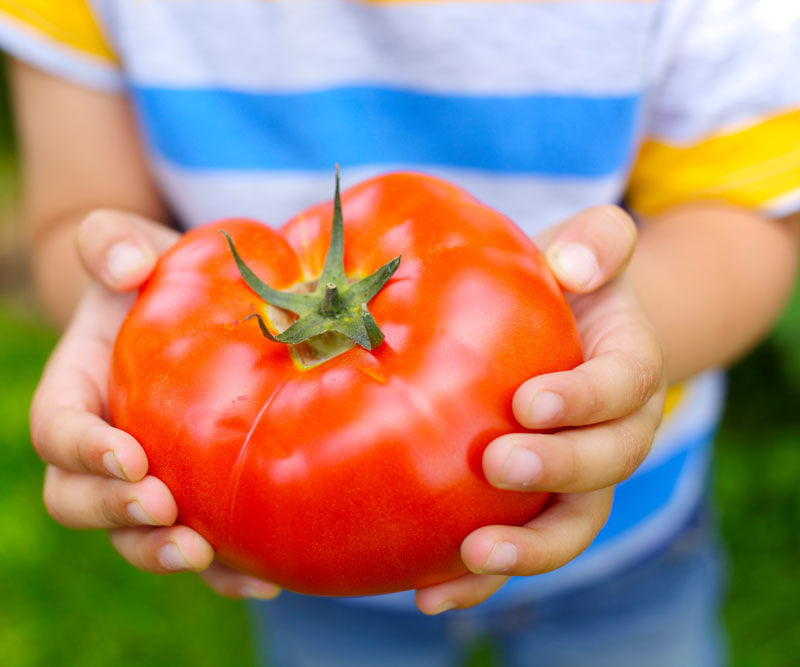
At-Home Gardens Grow Healthy Families
Growing fruits and vegetables at your home is an easy – and fun! – way to improve the health of both you and your family.
Research shows that gardening provides a bounty of benefits. Better brain function, reduced risk of Alzheimer’s, lower blood pressure, a stronger immune system, less stress and a sunnier disposition are just a few of the positives you’ll reap by spending some time in the soil.
It’s also a proven calorie burner and incentive to eating a cleaner, plant-based diet.
If you want to flex your green thumb, here are some quick tips to get you started:
- Find a local gardening club or program near you. The University of Hawaii at Manoa’s Cooperative Extension Service offers a statewide UH Master Gardener program that provides free advice and hands-on training for those who are interested in gardening. You also may be able to find experts at your local farmer’s market who can provide advice on your gardening needs.
- Identify what grows best in your area. Hawaii’s climate is perfect for growing foods like avocados, eggplant, papayas, beans, mangoes and pineapples. Research what will do well in your part of the island and what kind of soil you have.
- Start small. Think you need a sprawling backyard to grow a garden? Think again.
There are many dwarf fruit tree varieties available that can easily be grown in a pot. You also can start a small garden in your kitchen by a bright and sunny window. Once the plants get big enough, transplant them to a raised bed out in your front or backyard.
If you don’t have a yard of your own, consider starting a windowsill garden of fresh herbs. Heartier fruits and vegetables, such as bell peppers, lettuces and tomatoes, are perfect for a container garden.
- If you don’t succeed, try, try and try again. If you were not successful the first time, take the opportunity to learn what worked and what didn’t. Maybe the papayas didn’t take root. Well, did you know papaya seedlings like well-draining soil and need to be fertilized regularly? Don’t give up; you will be successful the next time.
- Get the family involved. Gardening is more fun when the whole family is involved. Make it a fun science project for keiki – they can research what plants need to grow, then monitor their experiment by weeding and watering the plants.
Also, children are more likely to eat what they grow. So if you’ve been wanting to introduce a new fruit or vegetable to your child’s palate, get to gardening!
Published on: March 25, 2015




